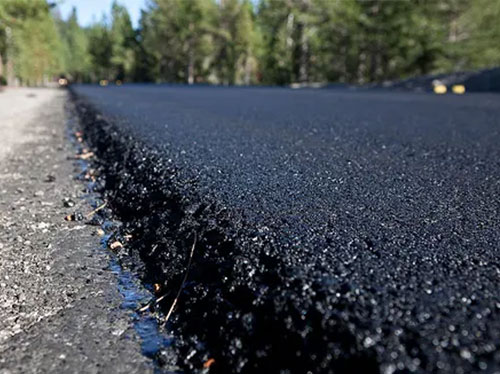Asphalt can be mainly divided into coal tar asphalt, petroleum asphalt and natural asphalt three kinds:
Coal tar pitch
Coal tar pitch is a byproduct of coking, that is, the tar after distillation remains in the still black matter. It and refined tar is just physical properties have respectively, there is no obvious boundary, the general division method is to specify softening point in 26.7℃ (cube method) below for tar, 26.7℃ above for asphalt. Coal tar pitch mainly contains anthracene, phenanthrene and pyrene which are difficult to volatilize. These substances have toxicity, because of the different content of these components, coal tar pitch properties are also different. The change of temperature has great influence on coal tar pitch, which is easy to crack in winter and soften in summer. Special smell when heating; Heating to 260℃ in 5 hours later, it contains anthracene, phenanthrene, pyrene and other components will volatilize out.
Petroleum pitch
Petroleum bitumen is the residue of crude oil distillation. According to the degree of refining, at room temperature into a liquid, semi-solid or solid. Petroleum asphalt is black and glossy, with high temperature sensitivity. Because it has been distilled to more than 400℃ in the production process, so it contains very little volatile components, but there may still be high molecular hydrocarbons unvolatilized, these substances are more or less harmful to human health.
Natural asphalt
Natural bitumen is stored underground, and some form mineral layers or accumulate on the surface of the earth's crust. This asphalt mostly through natural evaporation, oxidation, generally does not contain any toxins.
Asphalt materials are divided into two categories: ground asphalt and tar asphalt. Asphalt is divided into natural asphalt and petroleum asphalt. Natural asphalt is the residue of petroleum seepage after long-term exposure and evaporation. Petroleum asphalt is a product obtained from the residual oil of refined petroleum after proper process treatment. Tar pitch is the product of reprocessing the tar obtained from the distillation of organic matter such as coal and wood. The asphalt used in engineering is mostly petroleum asphalt, petroleum asphalt is a complex mixture of hydrocarbons and their nonmetallic derivatives. Usually the asphalt flash point is between 240℃ and 330℃, and the ignition point is about 3℃~6℃ higher than the flash point, so the construction temperature should be controlled below the flash point.






